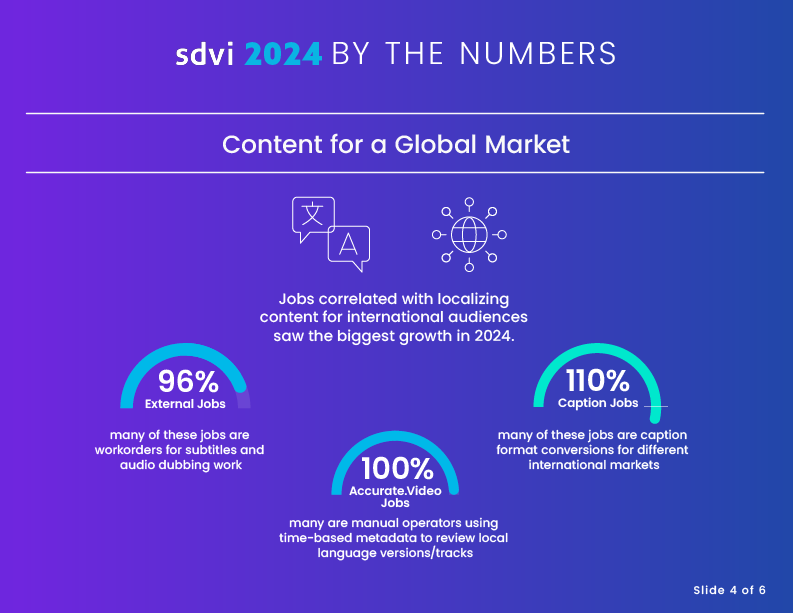Talk to any number of industry pundits or vendors, and you’ll hear them agree that machine learning (ML) has the potential to improve efficiencies and productivity for media organizations. Just how much potential depends on how well ML is used across the media supply chain to analyze media, create time-based metadata, automate processes, and facilitate more focused manual intervention where required.

The Rally media supply chain platform supports the use of ML unusually well because the platform boasts integrations with a variety of providers, and because it normalizes ML-generated metadata into a common format, making it readily usable — regardless of its source — to optimize tasks across the supply chain. SDVI customers, therefore, have the freedom to choose the best ML tool (or tools) for any particular job, and the power to aggregate and leverage a data lake of time-based metadata to make searching, QC, compliance, and other library functions faster, more accurate, and more targeted.
Collecting data at every step of a supply chain, including data from ML processes, Rally can summarize and present information that gives operators immediate insight into their supply chain performance. Over time, as Rally accumulates and aggregates supply chain data, the platform will be able to incorporate its own ML models to provide recommendations or suggest optimizations to the operators’ supply chains.
ML isn’t going to replace humans in the supply chain any time soon, but it will make those humans more productive. People won’t need to waste time reviewing hours of content when a machine can do the same in moments, sending up an alert when human review is required. They can stop parsing through different data formats to extract useful metadata and instead take care of tasks only a human operator can complete. Think of the efficiencies that are possible when media moving through a supply chain can be managed on an exception basis only, with automatically generated workorders for only those instances where an ML model has detected a potential problem that needs investigation.
Supply chains that embrace machine learning to handle mechanical, non-creative workloads can yield both productivity gains and an increase in content throughput. The same team of operators can now process more content or focus their time on more creative work that results in better content.
The resulting operational efficiency is incredibly valuable in today’s marketplace, where a media organization’s ability to process and deliver content quickly can be a competitive differentiator. Delivering better content (and more of it) is an even bigger win.
—
Learn more about Rally Access for metadata-driven QC and compliance editing.


